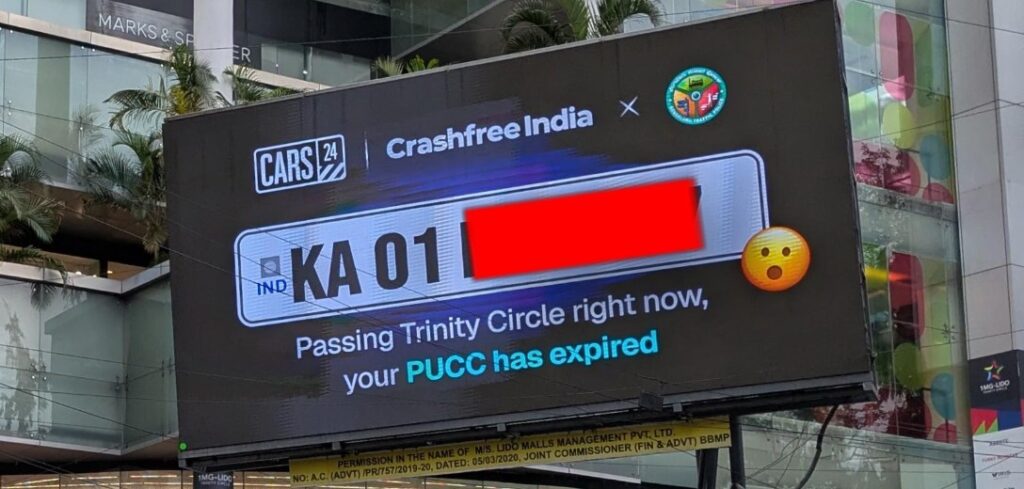In a landmark step blending technology with civic discipline, Bengaluru has become the first Indian city to install an AI-powered billboard that displays unpaid traffic fines, expired vehicle documents, and other compliance issues in real time.
The pilot project, stationed at the busy Trinity Circle, aims to shame violations into compliance and reward responsible drivers at the same time.
A New Face of Enforcement
The initiative is a collaboration between the Bengaluru Traffic Police, Cars24, CrashFree India, and Monday Ventures, signalling a bold experiment in using public accountability to boost road safety. The large digital screen is fitted with advanced cameras capable of scanning licence plates up to 100 metres away. Within seconds, it pulls compliance data from the VAHAN database, flashing details of unpaid challans, expired insurance or lapsed Pollution Under Control (PUC) certificates for all to see.
Unlike traditional enforcement systems, the AI billboard also acknowledges vehicles with no violations, turning it into both a deterrent and a reward system.

The Scale of the Challenge
Bengaluru records over 30,000 traffic offences daily across its one crore-plus registered vehicles. In 2024 alone, the city collected Rs849 crore in fines from 82.9 lakh cases. By August 2025, another Rs1,150 crore had already been collected. Authorities recently recovered Rs106 crore from 37.8 lakh cases after offering a one-time 50% fine concession — proof of how big the compliance gap is.
Officials hope that flashing violators’ details in public view will create immediate social pressure, shifting driver behaviour and reducing accidents.
Privacy and Public Debate
The initiative has sparked a citywide debate.
Supporters argue it’s a game changer for road safety, creating instant awareness and a sense of accountability. Critics, however, warn against privacy violations and public shaming, urging safeguards to prevent misuse.
Joint Commissioner (Traffic) Karthik Reddy clarified that the system is “not punitive but reflective”, designed to make citizens aware of their status and prompt timely corrections.
A Model for Other Cities?
Urban planners, policymakers and civic activists across India are closely watching Bengaluru’s pilot project. If successful, this model could be replicated in other congested metros facing similar enforcement challenges.
Why This Matters
The AI billboard highlights a larger trend: cities turning to technology not only for enforcement but also for behavioural change. While public visibility can motivate compliance, experts stress that data transparency, privacy protection and grievance mechanisms must be built in to prevent misuse


